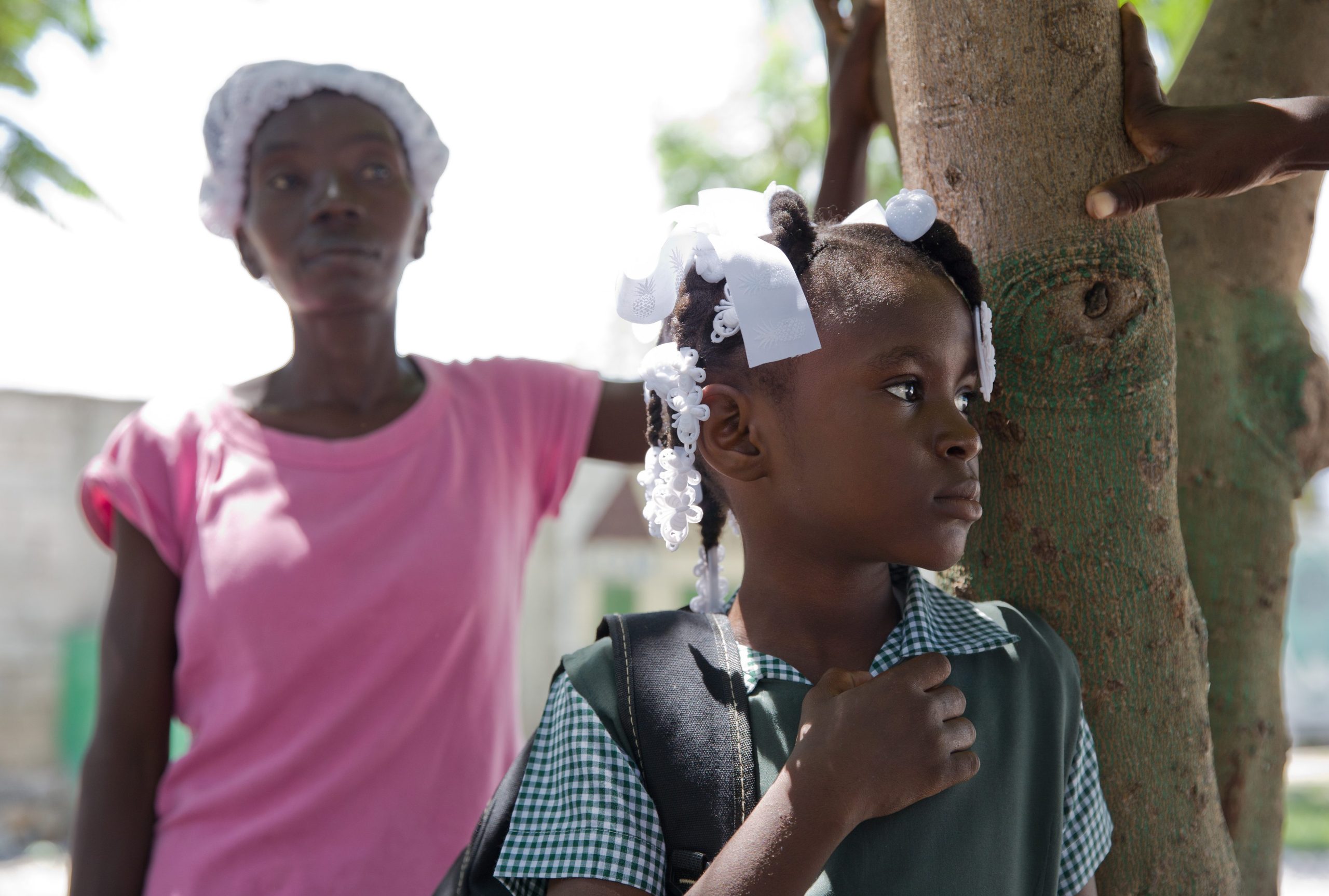Haiti is experiencing an unprecedented humanitarian emergency: 80% of the country is now in the hands of gangs of criminals who, since February 29, have unleashed a new wave of armed violence.
Hospitals and schools in Haiti have been destroyed or forced to shut down due to a lack of staff and resources. The main port, a crucial point for importing food, has been looted, while the airport remains closed. Haiti, which heavily depends on imports, is facing a shortage of essential supplies such as medicines, food (since only 40% of it is produced locally), drinking water, and fuel (entirely imported and serves as the sole energy source). Even phone signal repeaters rely on fuel; therefore, the paralysis of telecommunications is also at risk.
AVSI and other humanitarian organizations have reduced their non-essential personnel and moved them out of the country. We remain committed to supporting Haitian communities with essential expatriate staff and 300 local employees. Our primary focus now is to assist and support the affected communities, especially in the capital city.
What's happening in Haiti: Flavia Maurello testimony from Port-Au-Prince
"It is difficult to indicate a hierarchy of the many existing emergencies - Flavia Maurello, head of AVSI in Haiti, where our organization has a staff of more than 300 members, recently explained - Our most important program is that of 'humanitarian protection' that we develop in the slums of the capital. We are trying to respond to the basic needs of the population at the mercy of migratory movements produced by violence. And we mainly deal with women and children."
The activity of AVSI in Haiti
Nurses, doctors, and educators in the slums of Port-au-Prince
AVSI staff in Port-au-Prince slums continue to provide aid to those in need. Despite the broken connections and barricades, our team of nurses, doctors, and educators tirelessly walk through the challenges to deliver essential support, including food, water, and medicine. "There remains concern for our colleagues who live in the most dangerous areas of the city - explains Maurello - There are people who can't get into the house, others who have lost it, and still others who have taken refuge in the churches. We keep opening the office because the staff asks us and because being together comforts us."
Development projects continue in rural areas of Haiti
AVSI also operates outside the capital: in rural areas, our activities continue with projects in socio-education, human rights, agriculture and food security, child protection, economic strengthening, and livelihood and training.
The start of the uprising in Haiti: what happened in March 2024
In late February, Prime Minister Ariel Henry announced the date of the 2025 election while traveling to Kenya. However, his statements caused a revolt among the population because he intended to form a government until 2026 despite his term expiring on February 7. Henry had been serving as the interim president following the assassination of Jovenel Moïse in 2021.
At the time of Henry's announcement, criminal gangs joined forces to attack the prisons and release 4,000 inmates. As a result, Port-au-Prince Prison and others are now empty, with 10% of inmates staying in their cells because they didn't know where to go. The released inmates joined the ranks of the gangs, which now control 80% of the country.
On March 11, a state of emergency was declared in the country, and President Henry announced his resignation. "We didn't think it could get any worse," said Maurello.
AVSI testimonies
in the internantional media
in the Italian media
- FROM HAITI / 'The gangs no longer want the premier: there is a risk of escalation, we need a US initiative,' Il Sussidiario.net
- Haiti. The humanitarian worker in Port-au-Prince, "serious and surreal situation. Half city and airport in the hands of the gangs", AgenSir.it
- Popular Radio min. 7.50
- Haiti. The humanitarian worker in Port-au-Prince, "serious and surreal situation. Half city and airport in the hands of gangs", The People's Defense
- Haiti, let's not leave her alone. Life
- Radio24, interview with Giampaolo Silvestri (at min 30)
- From Haiti, 'The gangs take advantage of starving people, we work to rebuild hearts,' The Sussidiario.net
- Drama Haiti, the testimony of an Italian cooperant: 'Bodies on the street and continuous looting,' La Repubblica
